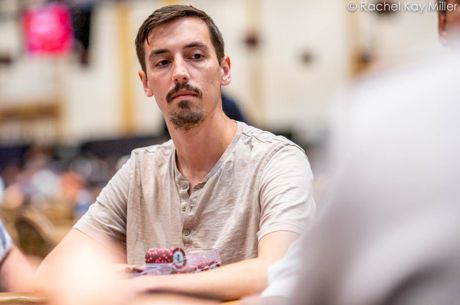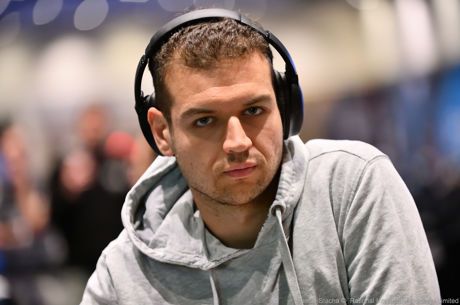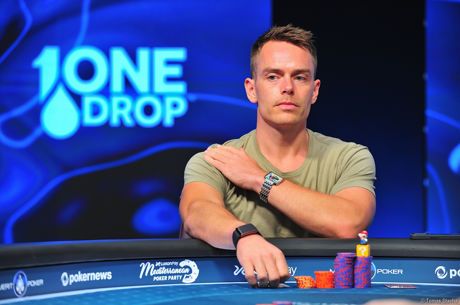Catching Up With Barry Greenstein

Barry Greenstein is one of the most famous poker players in the world, and, unlike some of the ones dominating the camera's spotlight on television, he also happens to be one of the best. On his website, barrygreenstein.com, he provides analysis and ratings of his own play along with that of the world's other outstanding players. Since age 36, when he left his job at software company Symantec, he has been playing poker full time. Career wise, he estimates winning 75 percent of his no limit hold 'em sessions, and 58 percent of his limit ones. Mr. Greenstein has donated a large portion of his winnings to Children, Incorporated which is why he is sometimes referred to as "The Robin Hood of Poker." In this interviewer's opinion, Mr. Greenstein, along with Ted Forrest, came off as one of the the most likable and honorable of the professionals described in Michael Craig's The Professor, the Banker, and the Suicide King: Inside the Richest Poker Game of All Time. While being a master of the felt, he is also an author. His picturesque and informative, Ace on the River: An Advanced Poker Guide, got its name from the card which earned him the 2004 World Poker Tour title at Tunica. Doyle Brunson noted that the text was "like candy to a poker player."
BC: Mr. Greenstein, thank you so much for your time. My first question concerns your status as a celebrity. Television fueled the poker boom, but it did so principally by covering tournaments (High Stakes Poker came later). As someone who is primarily a cash game player, was it ESP that suddenly led you to begin competing in tournaments at just the right time?
Barry Greenstein: I was invited to play in the Poker Superstars tournament on FSN as one of the eight best players in the world. I was chosen because of my cash game results. The producers mentioned that the public didn't know me well because I hadn't played in many tournaments. I told the producers I would play in some before the show aired and I would win some.
Then, when I decided to give the tournament winnings to charity, it spurred me on to keep playing in big tournaments.
BC: Along these lines, what do you find most and least appealing about fame? A few years ago you were known only to the elite, but now, due to ESPN and The Travel Channel, you're probably recognized practically everywhere.
Barry Greenstein: It's all good, really. People are nice to me wherever I go.
BC: My compliments on your book, Ace on the River: An Advanced Poker Guide. I really enjoyed it. You have a beautiful chapter within called "Gambling and Productive Society," and I always use your argument that government sponsored lotteries are a far bigger scam than poker or most casino games. For those who haven't read it, why is this true?
Barry Greenstein: Any time politicians are involved in gambling, their motives are questionable. Gamblers, on the other hand, need to be honorable or they will be ostracized.
BC: Speaking of government, what's your opinion of the Unlawful Internet Gambling Enforcement Act of 2006 (UIGEA)? Do you think that, eventually, Americans will be banned from playing online all together?
Barry Greenstein: This law came into effect because the politicians weren't getting their share of the money. When they do, online poker will become legalized and regulated.
BC: Do you think that the online ban might spell the end of the poker boom? Will it alienate the general public and decrease their level of interest?
Barry Greenstein: It will indirectly. The online sites were the deep pockets that were financing the poker boom. Not because they were putting people in tournaments, but because they were the number one advertisers for poker programming. If that money stops flowing, we will see less poker on television and less interest from the general public.
BC: In the same chapter, you label poker as an "inherently nonproductive profession" which is the reason why you so generously donate your profits from tournament wins to charities. Aren't you selling poker a bit short here? I mean, most people don't produce vaccines that save lives or do things preventing the extinction of species. Most of our occupations are rather mundane.
Barry Greenstein: There are many other non-productive professions also. I never said that playing poker was a bad job, it's just not my idea of making a contribution to society or civilization.
BC: I have to ask you, what's the attraction of playing in the big game? Many of us on the outside looking in simply can't understand. Why would a professional want to sit down with other amazingly talented peers each and every night? How much of it is ego driven? Aren't the swings incredibly frustrating?
Barry Greenstein: I play if I think I'm the favorite. It has nothing to do with ego. I'd rather play against rich bad players, but normally people who play for high stakes are better players than people who play for lower stakes.
BC: I'm not asking you to name names or anything, but how much of the poker instructional literature fails in making readers better players?
Barry Greenstein: I don't read much of the literature, but I assume most of it is written for beginning and intermediate players, and there are probably some valuable ideas for the readers to think about, but not accept blindly.
BC: Like Bill Chen and Jarrod Ankenman, who just wrote The Mathematics of Poker, you also have a math background. How much of your play is mathematically based? Overall, how essential is math to success?
Barry Greenstein: Math is not the key to success, but logical thinking is, and the two are correlated.
BC: Thanks so much for your time, sir.
Bernard Chapin is a writer and marginal poker player living in Chicago. He is the author of Escape from Gangsta Island








